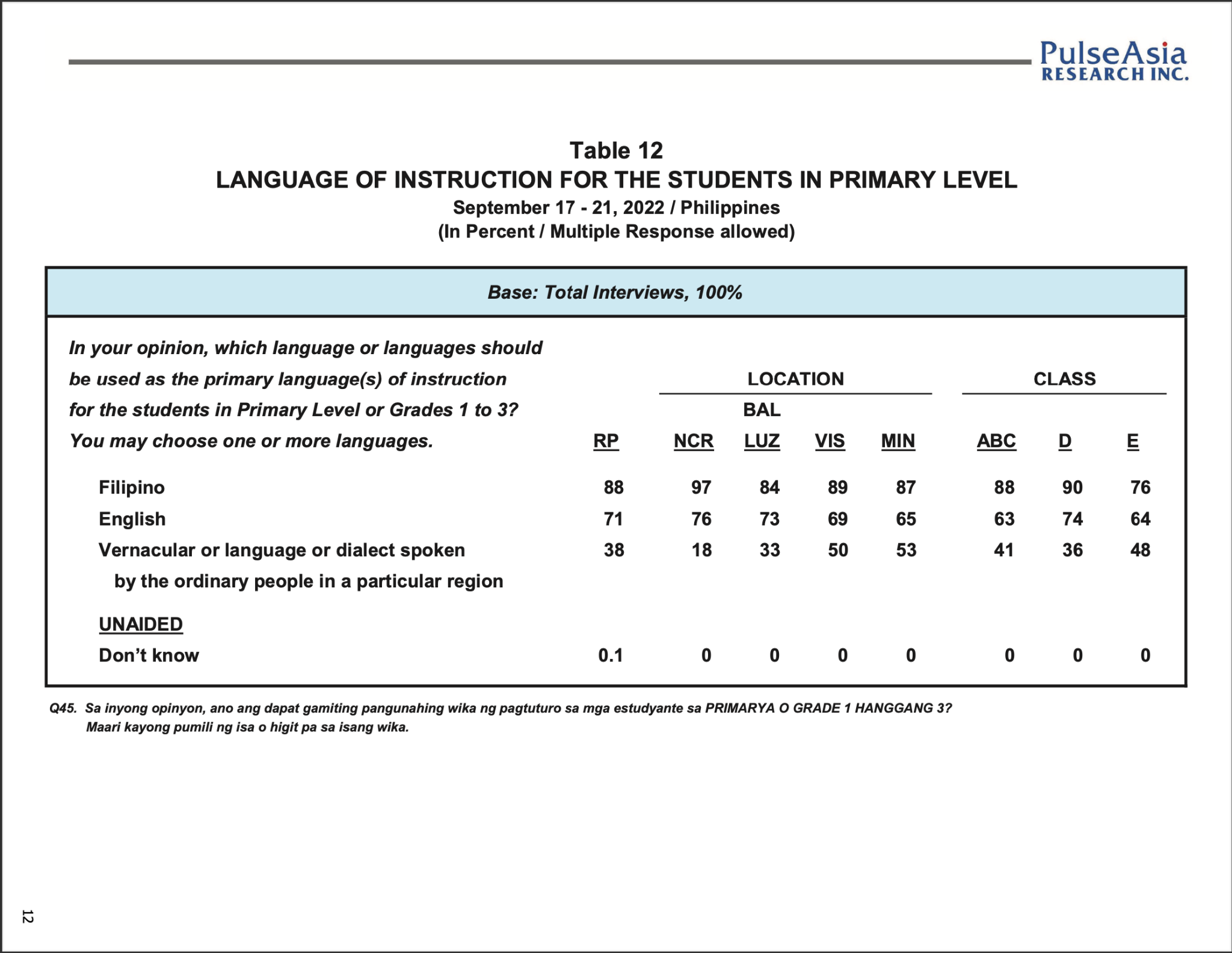A language spoken in a particular region is FIlipinos’ least preferred medium of instruction for Grades 1 to 3, results of a Pulse Asia survey commissioned by Senator Win Gatchalian show.
The survey, which was conducted from September 17-21, 2022, asked 1,200 respondents their opinion on which language or languages should be used as the primary language of instruction for students in the Primary Level or Grades 1 to 3. Only 38% of respondents preferred the local language spoken by the people in a particular region, while Filipino is the most preferred (88%) followed by English (71%).
At least half of respondents in the Visayas (50%) and Mindanao (53%) preferred the local language as the medium of instruction for Grades 1 to 3 while only 18% of respondents in the National Capital Region (NCR) and 33% in Luzon have the same preference. The survey also says less than half of respondents across classes ABC (41%), D (36%), and E (48%) prefer the local language as a medium of instruction for Grades 1 to 3 learners.
According to Gatchalian, Chairman of the Senate Committee on Basic Education, he will pursue a thorough and rigorous review on the implementation of the Mother Tongue-Based Multilingual Education (MTB-MLE), which was mandated by the Enhanced Basic Education Act of 2013 or the K to 12 Law (Republic Act No. 10533). Gatchalian last year filed Proposed Senate Resolution No. 5 to review the implementation of the K to 12 Law.
Under the law, the education, instruction, teaching materials and assessment from kindergarten up to Grade 3 shall be in the regional or native language of the learners. The Department of Education (DepEd) is further mandated to formulate a mother language transition program from Grade 4 to Grade 6 so that Filipino and English shall be gradually introduced as languages of instruction. At the secondary level, these two languages will become the primary language of instruction.
“Batay sa nakikita natin sa kakayahan ng ating mga paaralan at sa sentimyento ng ating mga kababayan, kinakailangang pag-aralan natin kung ano ang mga susunod na hakbang natin sa paggamit ng mother tongue. Kung ipagpapatuloy man natin ang polisiyang ito, kailangan nating tugunan ang mga hamong kinakaharap nito,” said Gatchalian.
In a public hearing on the implementation of the MTB-MLE last year, it was revealed that only 72,872 out of the targeted 305,099 educators underwent training. These include supervisors, school heads, and teachers teaching kindergarten to Grade 3.



